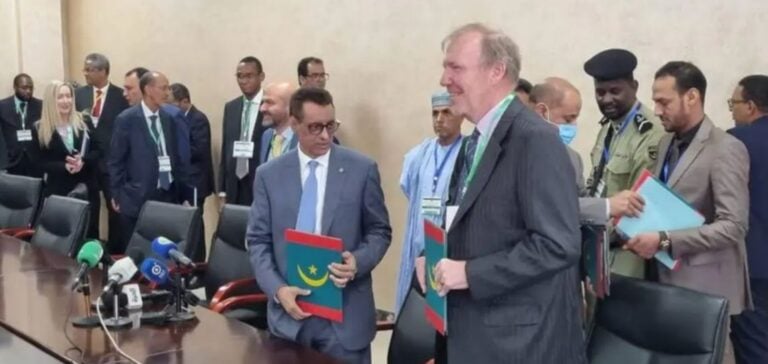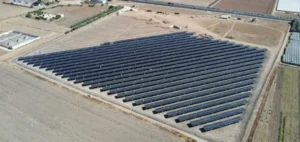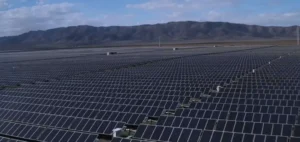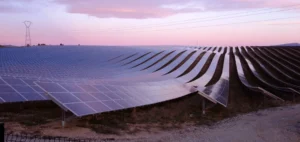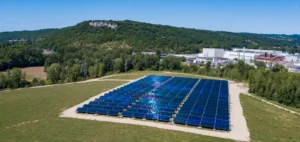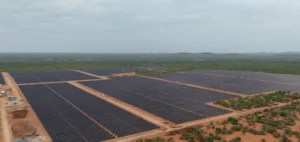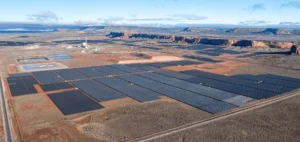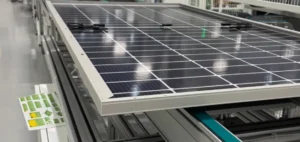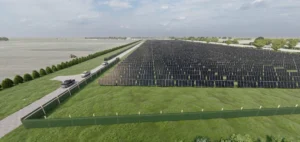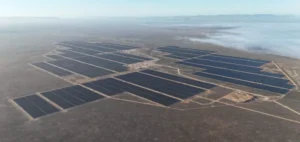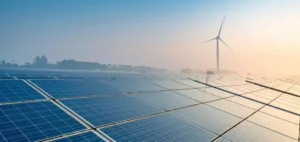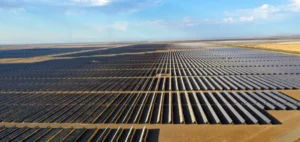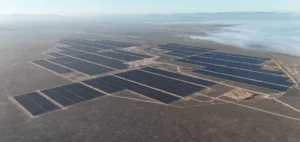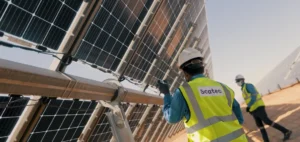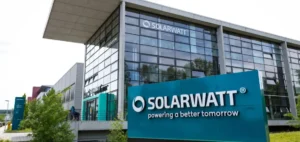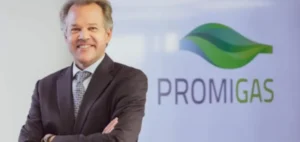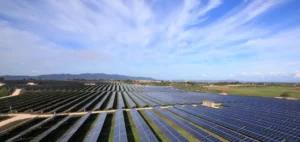EDF Renouvelables, the EDF Group’s subsidiary specialised in solar energy, officially announced the launch of a floating photovoltaic plant linked to an existing hydroelectric dam in the Isère department, Auvergne-Rhône-Alpes region. The project, located on reservoirs at the Cheylas dam, will involve approximately 70,000 solar panels, with commissioning planned for summer 2027. The plant will have an estimated installed capacity of 44 megawatt-peak (MWp), producing around 60 gigawatt-hours (GWh) annually, equivalent to the yearly electricity consumption of approximately 28,000 inhabitants. EDF expects major construction works at the site to commence in early 2026.
Hybrid technology: photovoltaic and hydropower
The Cheylas project aligns with EDF’s strategy of developing hybrid installations combining solar energy and hydroelectric infrastructures. A similar installation was launched in 2023 in Lazer, Hautes-Alpes, albeit with significantly lower capacity at around 20 MWp. These hybrid plants utilise existing hydroelectric dam reservoirs to install floating solar panels. This approach offers two main advantages: it reduces water evaporation and naturally enhances photovoltaic panel efficiency through water cooling.
Strategic valuation of EDF’s property assets
EDF continues its strategy of property valuation, further utilising the group’s existing assets to diversify energy holdings. This strategy leverages historically hydroelectric, thermal, or nuclear sites to establish photovoltaic infrastructures. Currently, EDF is evaluating several other hydroelectric reservoirs across France, although the company specifies it does not plan photovoltaic-hydroelectric combinations systematically on all its sites. This diversification is aligned with France’s national energy policy, aiming for installed photovoltaic capacity of 100 gigawatts (GW) by 2050.
Current French energy context
As of March 31, 2025, France’s nationwide installed photovoltaic capacity reached 26.8 GW, according to official data from the Ministry for Energy Transition. This figure represents significant growth in recent years, reflecting broader adoption of renewable energy sources within the national energy mix. This intensive solar development is part of a broader strategy aimed at diversifying energy resources to stabilise production and satisfy growing electricity demands from French businesses and households. In this context, hybrid initiatives such as the planned Cheylas project logically align with broader energy optimisation strategies.


